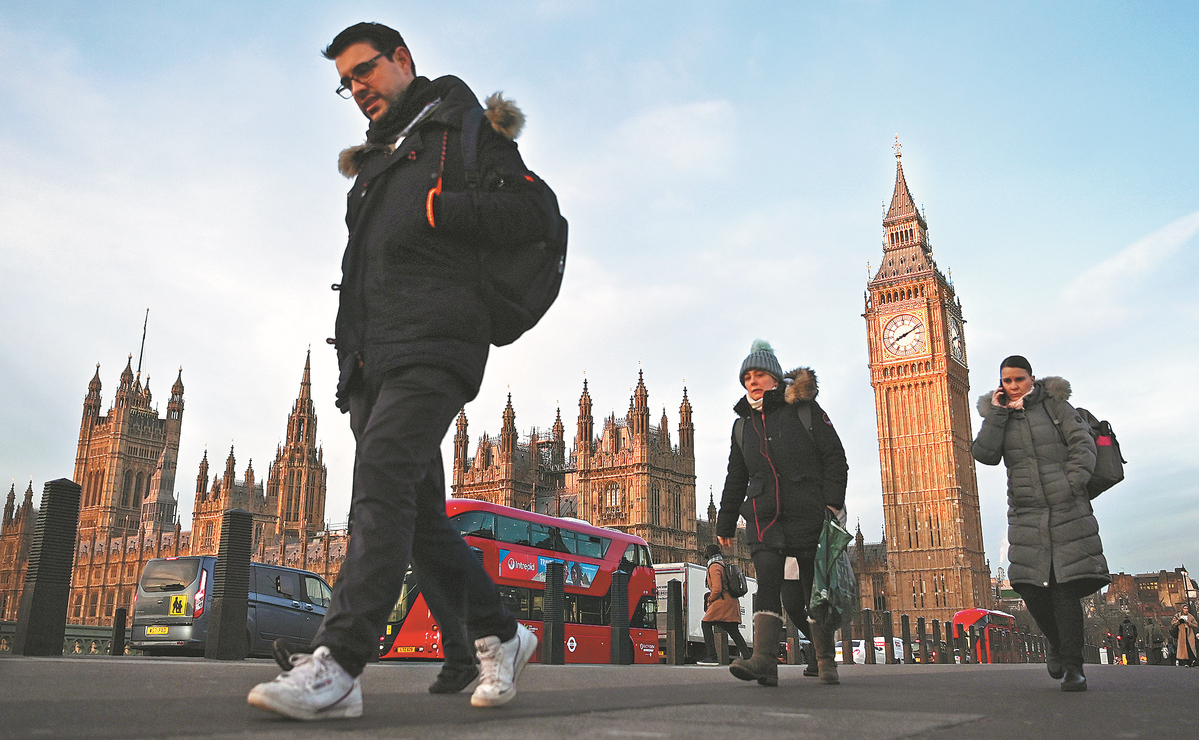Brexit casting long shadow


Doubts swirl on UK's future, with research showing harm to economy
Two years ago, the United Kingdom signed the Brexit trade deal and many expected a prosperous and dynamic future after the country completed its exit from the European Union. But now, doubts are swirling around Britain's future, with fresh research reinforcing a growing perception in the country that the withdrawal from the EU has caused huge damage to the economy.
The UK's economy is 5.5 percent smaller than it would have been if the country had stayed in the EU, the analysis by the think tank Centre for European Reform showed.
The referendum on whether the UK should go its own way took place in 2016, with about 52 percent voting in favor of leaving. After many twists and turns, the leaders of the EU and the UK agreed, at the end of 2020, on a trade deal called the Trade and Cooperation Agreement.
But the UK's economic strains have grown in the meantime. Over the past year, high inflation and rising living costs have hit hard. The Bank of England forecast in November that the country was heading into a long recession. Moreover, in 2023, it is expected that only 33 percent of Britons will have enough money for essential spending, and only 5 percent will be able to spend freely.
The country has been in the grip of a wave of strikes, which started in the summer of 2022. Rail workers and nurses have been among those staging industrial action.
A recent poll published in the British newspaper The Independent said that 65 percent of British people now support a referendum on rejoining the EU, up from 55 percent a year ago. Many said that Brexit has made the UK's economy worse and the country's global influence and ability to control its own borders have been weakened.
Jonathan Geldart, director-general of the Institute of Directors, said that Brexit has been difficult for many businesses.
"Our data shows that 60 percent of those who trade with the EU are finding Brexit challenging, with the main issues being the burden of administration and the loss of competitiveness against European firms," he said.
Hit particularly hard are those businesses that export so-called high-risk goods, such as agricultural products or products of animal origin. The customs processes for exporting such goods are complex, and the businesses sending them out can't afford to have their products — which need to stay fresh — held up at the border because of processing delays, he said.
Additionally, since freedom of movement between the two sides ended with the Brexit agreement, business travel has become a burden. Firms now often require work visas for employees, leading to a complex and expensive process that is hurting recruitment needs, Geldart said.
He said that larger businesses are finding it easier to adjust to Brexit, as they typically have more resources to help them cope with the burden compared with their smaller peers.































